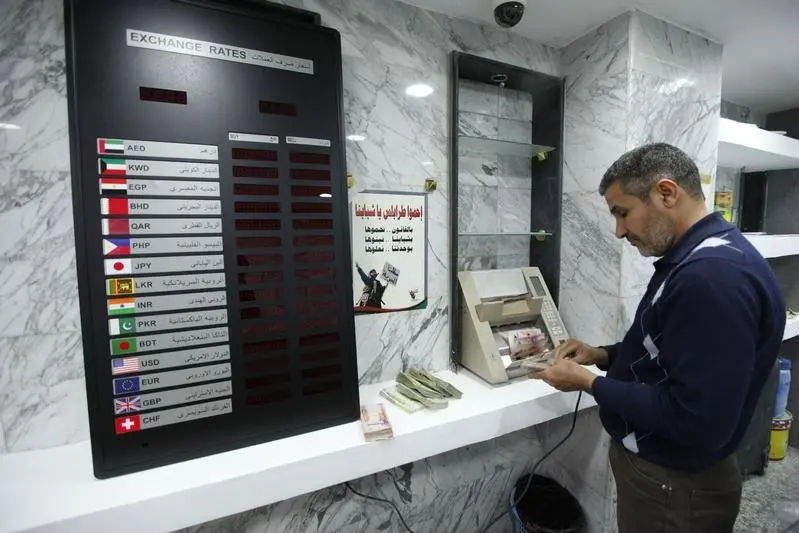PHOTO
TRIPOLI - Libya's central bank (CBL) said on Tuesday the country had earned 15.6 billion Libyan dinars ($11.4 billion) in oil revenue in the first six months of the year, accounting for more than 93 percent of total income and more than double the 6.8 billion dinars earned from oil in the first half of 2017.
Total spending was 16.88 billion dinars, a little more than total revenue of 16.7 billion, the Tripoli based CBL said in a statement.
Figures released by the CBL serve only as a rough guide to overall spending in Libya as the country has been politically and economically divided since 2014, with a rival central bank operating in the eastern town of Bayda.
That has thrown the economy into crisis, contributing to a liquidity crisis and a sharp drop in living standards.
Oil revenues - which have been boosted by higher production and rising prices - and most salary payments have continued to be processed through the CBL in Tripoli, and the two central banks are meant to be using a single, joint budget this year.
The Tripoli CBL said public salary payments made up 66 percent of spending in the first half of the year, and subsidies 19 percent. Salary payments would rise by 4.5 billion dinars in 2018 due to the inclusion of salaries under the eastern government, it said.
The CBL also listed spending in dollars, including an allocation of $2.09 billion for the National Oil Corporation (NOC) and $2.7 billion in family allowances.
The allowances are a mechanism for trying to inject dollars into the market and reduce the gap between a fixed official exchange rate of 1.4 dinars to the dollar and the black market rate of around 7 dinars.
With oil production and prices rising since last year, the Tripoli CBL and the internationally recognised Government of National Accord (GNA) in the capital have been under pressure to increase transparency about how Libya's oil money is spent.
Eastern factions have complained that too much goes to Tripoli's powerful militias and to the east's armed rivals, the stated reason that eastern officials shut down oil exports from several terminals last month, blocking most of Libya's oil production.
On Tuesday the GNA appealed to the U.N. Security Council to form a technical committee that could "review the expenditure, revenues and transactions of the central banks in Tripoli and Bayda".
The Tripoli CBL said it would welcome such a move. "The central bank declares its full readiness to cooperate with any committee in this regard," it said.
(Writing by Aidan Lewis Editing by James Dalgleish) ((Aidan.Lewis@tr.com; +216-29850352;))





















